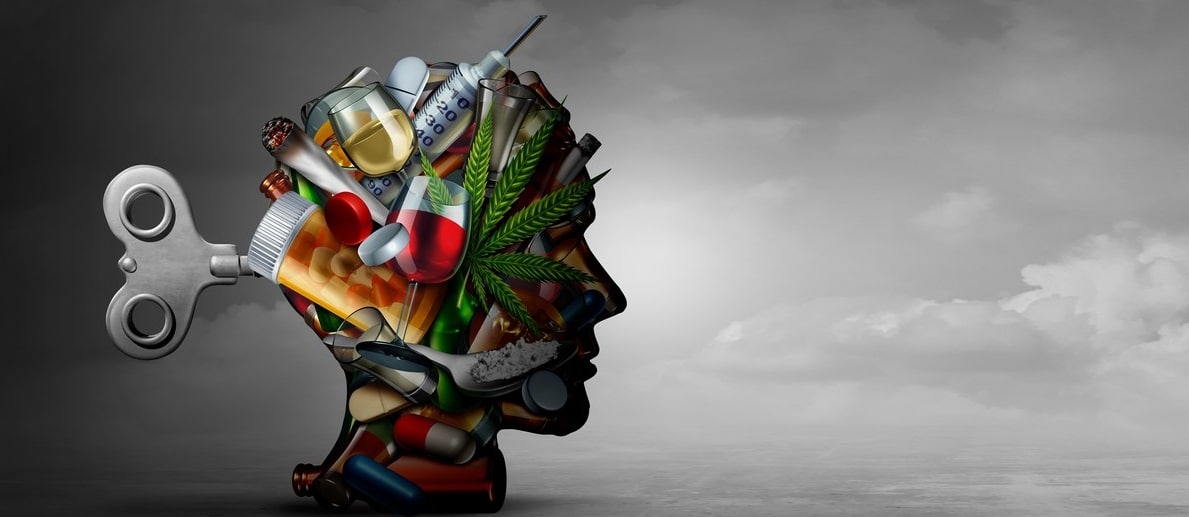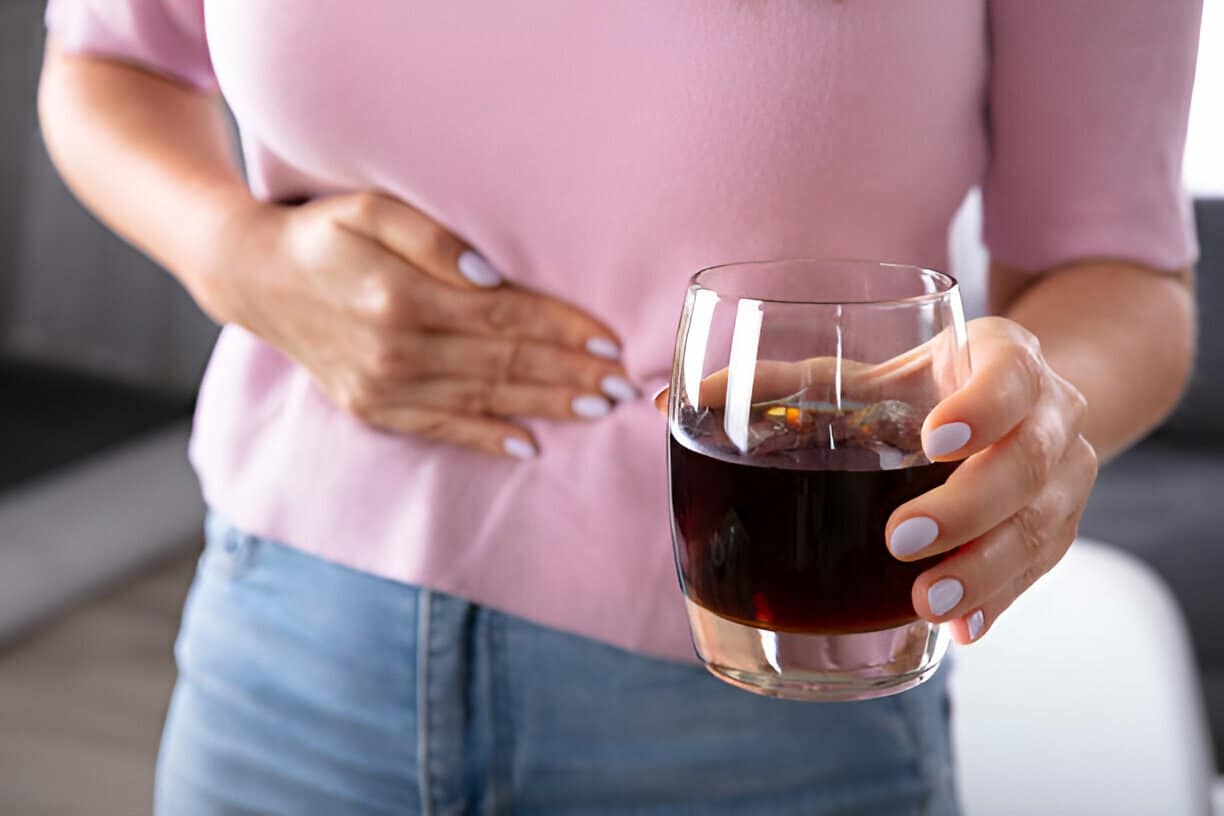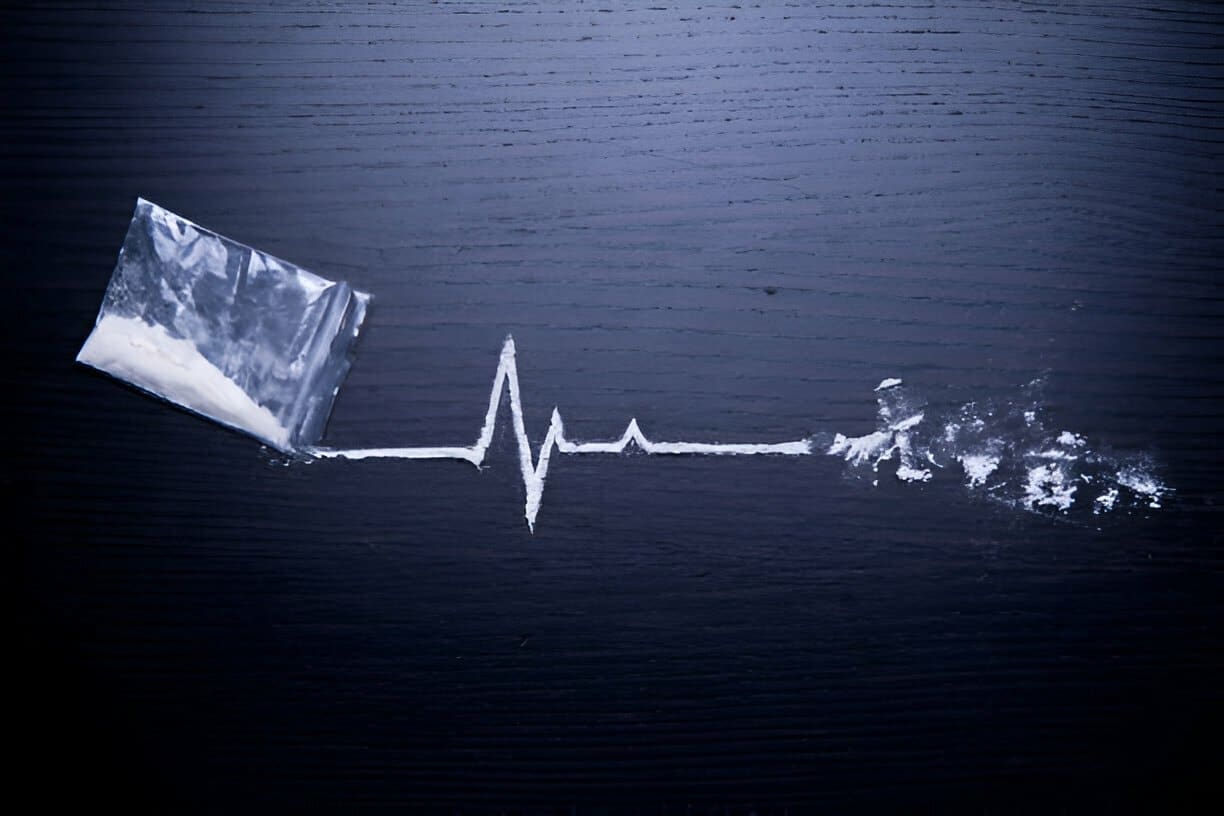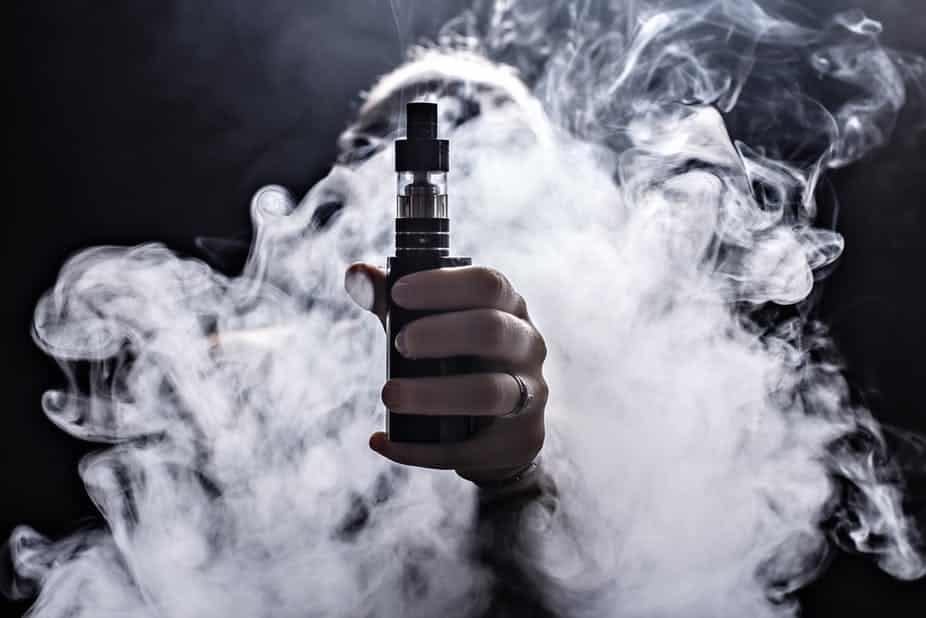The term “depression” is frequently misused to refer to any type of bad mood. Clinical depression, on the other hand, is far more serious. It’s a disorder in which you have an excessively low mood regularly, low self-esteem, and a loss of interest in everyday activities. Typically, a sad person does not eat well or take good care of their own health.
For the purposes of therapy, clinical depression is classed as a mental disorder. As a result, depression treatment focuses heavily on the patient’s thoughts, emotions, and decision-making. There are prescription drugs that can help when needed.
Speak to us on 0800 999 1083 to discuss treatment options and to find the best alcohol rehab centre.
While most addicts use illegal narcotics to feel euphoric, it’s not uncommon for them to become melancholy due to their habit. Depression is a common symptom of addiction, with addicts using drugs to cope with their symptoms and then becoming depressed as a result of their addiction.

Depression is a significant medical condition in which a person experiences sadness, hopelessness, and a sense of worthlessness. Depression causes people to feel alone, have suicidal thoughts, struggle to find the motivation to participate in society, and exhibit other signs of profound unhappiness.
There are several types of depression, each of which affects people differently. Some people may suffer from moderate depression, which is a persistent mood that makes everything in their lives a little more complicated.

The sensation can be significantly more intense and forceful for others, leading to suicidal thoughts or self-harm in extreme cases.
There are numerous medically recognised forms of depression in addition to varying levels. The following are some of them.
This condition, also known as unipolar depression, is characterised by a set of symptoms that make it difficult for a person to function in daily life. Mood changes, sleeping and eating patterns, exhaustion or loss of energy, feelings of shame and low self-worth, and thoughts about death are all possible symptoms.
Major depression is one of the most frequent types of depression, affecting around 7% of the population at any given moment.
This type of depression is characterised by intense melancholy, a loss of energy, anger, and changes in sleeping patterns that typically last for longer than two weeks.
Major depression can return throughout a person’s life if left untreated.
Bipolar disorder, often known as manic depression, is a mental illness that produces significant mood swings, ranging from mania to deep sadness, accompanied by symptoms such as disorganised thinking, psychosis, and even suicidal impulses. Bipolar disorder alternates between these two states, but external factors do not always bring it on.
Rather than the more severe highs and lows associated with major depressive illness or bipolar disorder, this type of depression is generally marked by persistent irritation. Before being diagnosed with depression, a person may suffer this mood for years.
This type of depression can be challenging to treat since some people may continue to act and believe that everything is fine while they are struggling on the inside, even if they don’t show any signs or symptoms on the outside.
Dysthymia is a milder form of depression in which people have a persistent “gloomy mood” that can last for more than a year.
Substance use disorder may temporarily cover bad emotions, but it has the potential to severely impair a person’s relationships, job, and daily activities in the long run. Dysthymia is a chronic illness that can develop into severe depression in the long run.
Don’t go through the process of recovery alone. Treatment providers can answer your questions. Get in touch with one today.
Call 0800 999 1083 today!
A person suffering from this sort of depression may feel gloomy and pessimistic. Although the symptoms of persistent depressive disorder are similar to those of dysthymia, it is a more severe form of depression that lasts significantly longer than two years and affects all parts of a person’s life.
This is a sort of depression that occurs more frequently in the autumn and winter when there are fewer daylight hours. It has been linked to changes in mood, behaviour, sleep patterns, and eating habits. Anxiety issues are common in people who suffer from this sort of depression.
To be diagnosed with SAD, someone must experience these symptoms for three consecutive winters.
Delusions and hallucinations are common symptoms of this type of depression. Although it is less prevalent than other forms, it can cause severe depression symptoms.
A person with atypical depression experiences sad symptoms, yet their mood is temporarily lifted when a positive occurrence happens.
Depression can be so severe during “low” periods that people feel like life isn’t worth living. Self-medicating with alcohol or other addictive substances for atypical depression can lead to serious behavioural issues.
Depression and drug addiction have a long history together. They frequently coexist, with addicts becoming unhappy as their addiction grows or depressed persons turning to substance abuse as a coping mechanism.

People suffering from depression all have symptoms in common, such as:
There are more signs and symptoms of depression and addiction, but in general, it’s better to look for dramatic changes in a person’s personality or physical appearance.
It’s often vital to treat depression and addiction simultaneously, but it’s sometimes difficult to distinguish whether an addict is experiencing symptoms related to their addiction or those related to depression. With this in mind, if either of these conditions is anticipated, it’s essential to seek medical advice and have a complete checkup.
Most people who are depressed will experience one or more of the typical symptoms at some point in their lives. Symptoms of severe depression, on the other hand, can be exceedingly serious, even life-threatening.

Neurotransmitters in the brain, particularly Serotonin and Dopamine, regulate a person’s mood. The latter neurotransmitter motivates and rewards the body, whilst the former is in charge of mood regulation. The usual pattern of production and absorption of these neurotransmitters is disrupted by drug use.
Consistent alcohol abuse leads to a problem with the brain’s ability to regulate and create serotonin. Alcohol use, for example, has been shown to diminish Serotonin levels. While inebriated, this can sometimes lead to a sad or depressed state.
In other circumstances, taking drugs leads the brain to release large amounts of neurotransmitters. This produces artificial and exaggerated sentiments of joy and satisfaction. The brain adapts to this influx of neurotransmitters as a result of drug abuse while will acquire tolerance to the medicines over time, requiring more significant doses to achieve the same ‘high.’ Addicts will experience depression as a result of the contrast between how they felt when using drugs and how they feel without them.
Withdrawal is another way that drugs cause depression. Withdrawal symptoms can be excruciating and unbearable. They include vomiting, seizures, chills, shaking, irritability, light and sound sensitivity, and, in extreme cases, death. Suicides have been reported during this time, and it is not uncommon for addicts to relapse solely to alleviate withdrawal symptoms.
Don’t go through the process of recovery alone. Treatment providers can answer your questions. Get in touch with one today.
Call 0800 999 1083 today!
When a person has both a mental health issue and an addiction simultaneously, they are said to have a co-occurring disorder. If you experience depression, for example, you’ll probably drink excessively or take drugs to alleviate your feelings. You may be at a higher risk of getting another mental illness, such as anxiety or bipolar disorder, as a result of this.
Depression and addiction are inextricably linked, and those who suffer from both are not uncommon. Someone may develop severe depression due to their addiction or become addicted to alcohol or drugs to cope with their negative emotions. As a result, the two begin to feed off of each other, exacerbating the symptoms of both disorders.
A qualified medical expert, such as a doctor, psychiatrist, or another healthcare provider, should identify both mental health and addiction disorders. The symptoms of each condition vary depending on how serious they are, what substances have been taken, and how long someone has been abusing them, which can make the diagnosis of depression alongside an addiction challenging.
There are, however, several requirements that must be met before doctors can make a diagnosis. For example, suppose you’ve had a low mood (or even a loss of interest in regular activities) for more than two weeks, and these feelings don’t improve with lifestyle changes like eating well and exercising. In that case, your doctor may refer you to a counsellor who specialises in treating both conditions simultaneously.
Typically, addiction treatment centres provide mental health services alongside addiction therapies.
Patients may be asked to fill out a questionnaire by doctors or mental health experts to understand more about their symptoms, thoughts, and feelings. The information gathered in this evaluation assists doctors in making a thorough diagnosis and identifying the best course of treatment.
Mental health practitioners frequently consult the Diagnostic and Statistical Manual of Mental Disorders (DSM-5). This manual’s criteria assist clinicians in diagnosing mental illnesses and are used by insurance companies to reimburse for treatments connected with those illnesses.

Treatment options for patients with co-occurring disorders are diverse, and treatment strategies vary based on the severity of each problem. If you’ve been diagnosed with depression and addiction, your doctor may recommend that you attempt Cognitive Behavioural Therapy, mindfulness, or other brain stimulation therapies to treat both conditions at the same time. These brain stimulation techniques may include repetitive transcranial magnetic stimulation or electroconvulsive therapy, although the treatment varies depending on the individual.
Antidepressants, such as fluoxetine may also be recommended for those who require them. They do, however, have some risks, including the possibility of causing suicidal thoughts, which is why it’s critical for anyone on medication to see a doctor regularly.
Clinical depression is a devastating illness that makes it nearly impossible for a person to operate normally. It can be exacerbated by the presence of an alcohol or substance misuse problem. Fortunately, depression treatment exists to assist people who have fallen victim to clinical depression regain control of their lives. Countless numbers of people have benefited from depression treatment.
Some of the medications used to treat depression have also been demonstrated to be effective in treating alcohol and drug addiction. That implies that you can seek treatment for both if you have both, which is known as a dual diagnostic condition. A good example would be someone who is suffering from clinical depression and alcoholism at the same time.
Those suffering from severe addictions and depression would almost certainly require more intensive treatment, including the following.

People can stay in rehab while living at home with this addiction treatment. An outpatient programme can be personalised to the needs of each individual and may include counselling sessions with a therapist or attendance at support groups such as Narcotics Anonymous (NA), where they will meet other people who are also dealing with addiction. While many people prefer this option since it is the least invasive, effective addiction therapy requires a more comprehensive approach.
With this treatment, you’ll go to a hospital or wellness centre for several hourly therapy sessions. These will be held regularly with a consultant or therapist, usually once a week.
This is when you will live in a hospital (or specialised centre) and receive round-the-clock support for your depression and treatment for your addiction.
An inpatient rehabilitation centre may be the best option for those with more significant addictions – especially if they’ve been diagnosed with mental problems such as depression. Inpatient therapy permits patients to reside in a rehab facility full-time to participate in a complete rehabilitation programme that includes thorough medical care and attention. This is especially crucial for those who are depressed, as they may require more support and supervision during the rehabilitation process.
Different forms of therapy can be used to treat depression.
An approach known as cognitive behavioural therapy (CBT) is one of the most frequent types of depression therapy. CBT is used to treat various mental health issues, including depression, all over the world. It’s founded on the idea that depression develops and worsens as a result of deep-seated, negative thought patterns. CBT works by recognising and correcting problematic thought patterns and any negative behaviours you may have. This allows you to think more clearly and question any negative assumptions you may have.
Some addiction treatment organisations can deliver depression (and addiction) therapy online programs, so you can get help and support from the comfort of your own home and at a time that suits you. This type of therapy isn’t generally adequate for patients with more severe addictions or acute depression stages. However, it can help people with mild symptoms or in the early stages of any condition and cause little to no disruption to their lives.
This is done individually between you and the depression expert who is best suited to your needs. It allows you to discuss your depression in-depth in a safe and friendly atmosphere. Your specialist will assist you in addressing your problems and helping you in getting the best possible results. This can occur in person or online.
This is conducted in a group environment with other patients who have depression or are struggling with similar issues. You will be encouraged to share your experiences and offer mutual support and assistance throughout these meetings. All of this occurs in a supportive and nonjudgmental environment.
This therapy involves you and your immediate family, friends, or significant other. This type of therapy is beneficial because it helps you and your loved ones to make plans for how you may help each other in the future. It enables you to have an open and honest discussion with one another. This allows everyone involved to gain a better understanding of your depression and the effects it is having on you and those closest to you.
In addition to CBT and other forms of therapy, you can be prescribed antidepressant medication. This can assist in supplementing talking therapy and function as a second line of defence against depression.
There is a vast selection of drugs available to treat depression that is safe and effective. Selected serotonin reuptake inhibitors are the most popular type of antidepressant used to treat depression (SSRIs). Fluoxetine (Prozac) and sertraline (Zoloft) are two examples. Specialist psychiatrists can assist you in finding a treatment that is suited to your specific needs, and they can see you frequently during your treatment.
If your loved one needs support dealing with an Alcohol Addiction, contact us today on 0800 999 1083. We can help you by recommending treatment options.
Maintaining your mental, physical, and spiritual well-being can benefit your recovery from depression. As a result, some organisations also provide a variety of wellness activities and depression-related complementary treatments. These may include the following:
Dual diagnosis is a reasonably typical occurrence in the twenty-first century. Unfortunately, determining whether there is a cause-and-effect link is typically challenging. In some circumstances, a pre-existing clinical depressive problem may have contributed to a drug or alcohol addiction. In other situations, it might be the polar opposite. In some cases, there may be no cause-and-effect relationship at all.
The challenge for doctors and therapists is treating two illnesses simultaneously without one harming the other. If this isn’t possible, they may choose to treat one condition while assuming the other is its root cause.
Both conditions may return and negatively impact your quality of life if you do not receive adequate treatment for a dual diagnosis like depression and substance abuse. To learn more about possible treatment options, contact us on 0800 999 1083 today.

BACP accredited psychotherapist with 16 years experience working in mental health specialising in psychodynamic person-centred therapies treating those with a range of mental health disorders including anxiety, depression, OCD and Addiction.

Fill in your details and we’ll send you a message via SMS.

No matter where you live, there are drug and alcohol rehab options for you to discover. Treatment providers are waiting to answer your questions. Get started today.

Ever felt that gnawing ache or burning sensation in your gut after a night of drinks? You’re not alone. Stomach pain after drinking is a common complaint, and there are a few reasons why it might happen. Let’s delve into the science behind the discomfort and explore ways to soothe your stomach. The Irritating Truth: … Continued

Cocaine, a stimulant known for its short-lived burst of energy and euphoria, hides a dark side. Behind the initial high lies a dangerous potential for overdose, with severe health consequences and even death. This article delves into the world of cocaine overdose, equipping you with the knowledge to recognize the signs, understand the dangers, and … Continued

Adult smoking habits in the UK refer to how often and in what ways people aged 18 and above use tobacco. This includes everything from smoking cigarettes every day to occasionally lighting up, as well as using other tobacco products. Understanding these habits is important for several reasons: Public Health: Smoking causes many diseases that … Continued

Addiction in the UK is a complex issue that is connected to various aspects of society such as healthcare and law enforcement. It affects people from all backgrounds and has negative impacts on families, communities, and the entire nation. Understanding addiction involves not only looking at the uncontrollable use of substances and repetitive behaviors but … Continued

Don’t go through the process of recovery alone. Treatment providers can answer your questions. Get in touch with one today.
Call 0800 999 1083 today!








